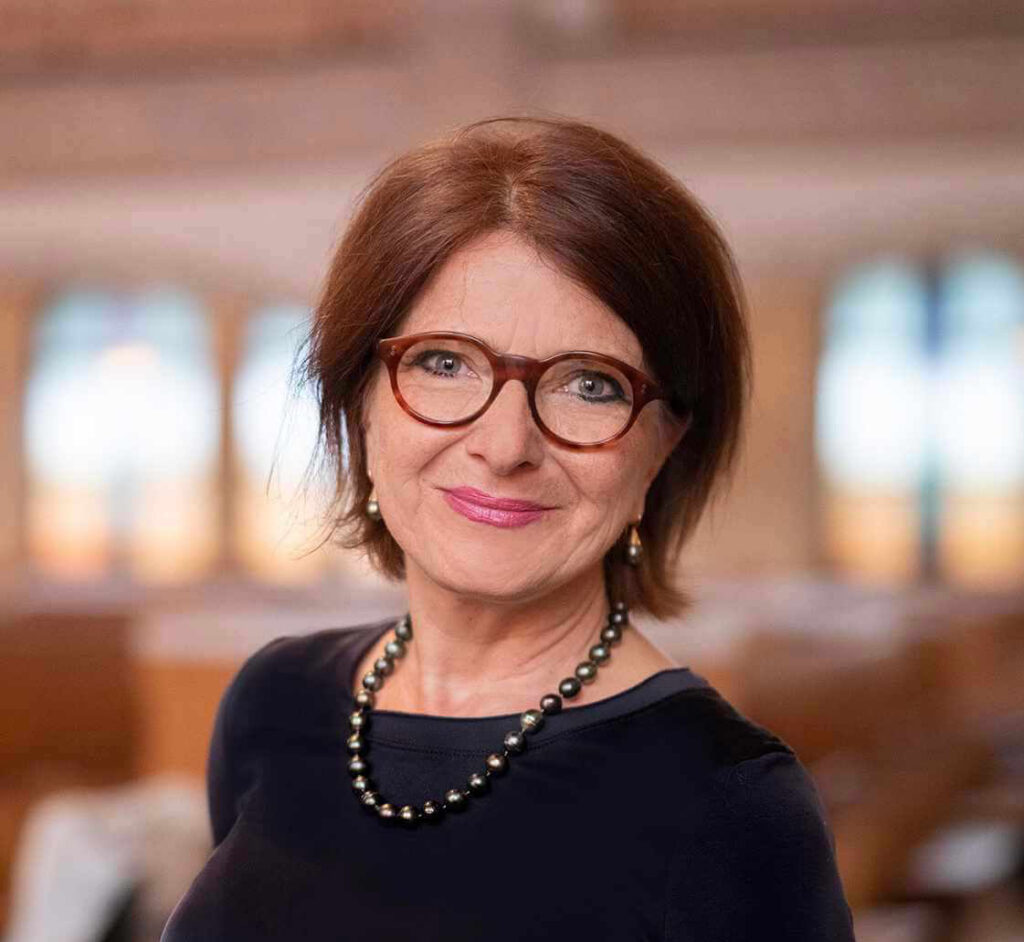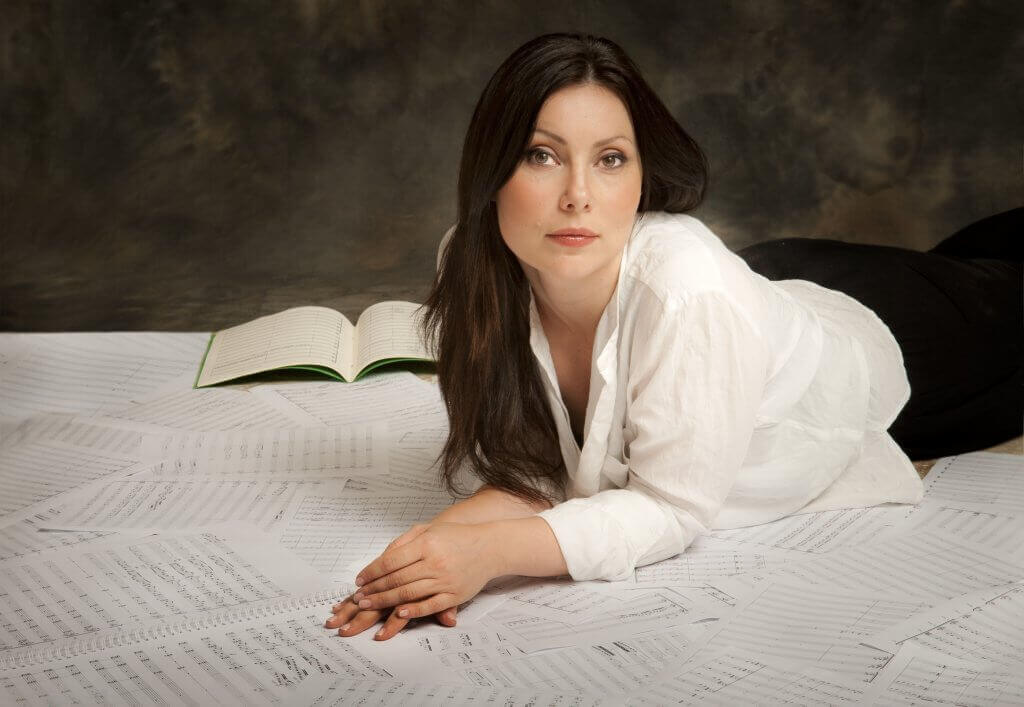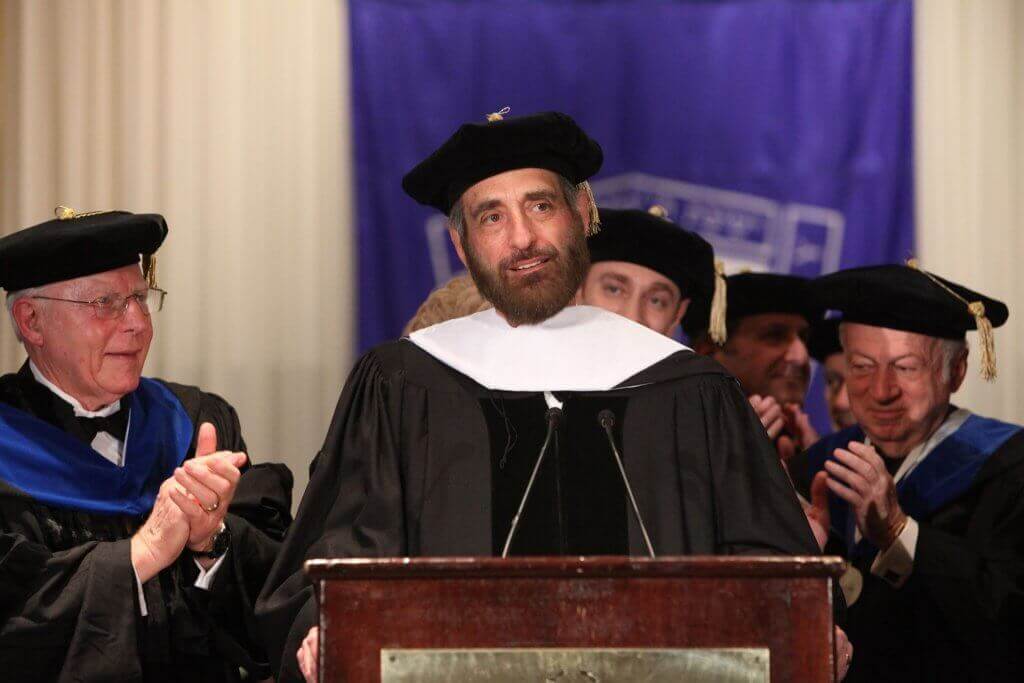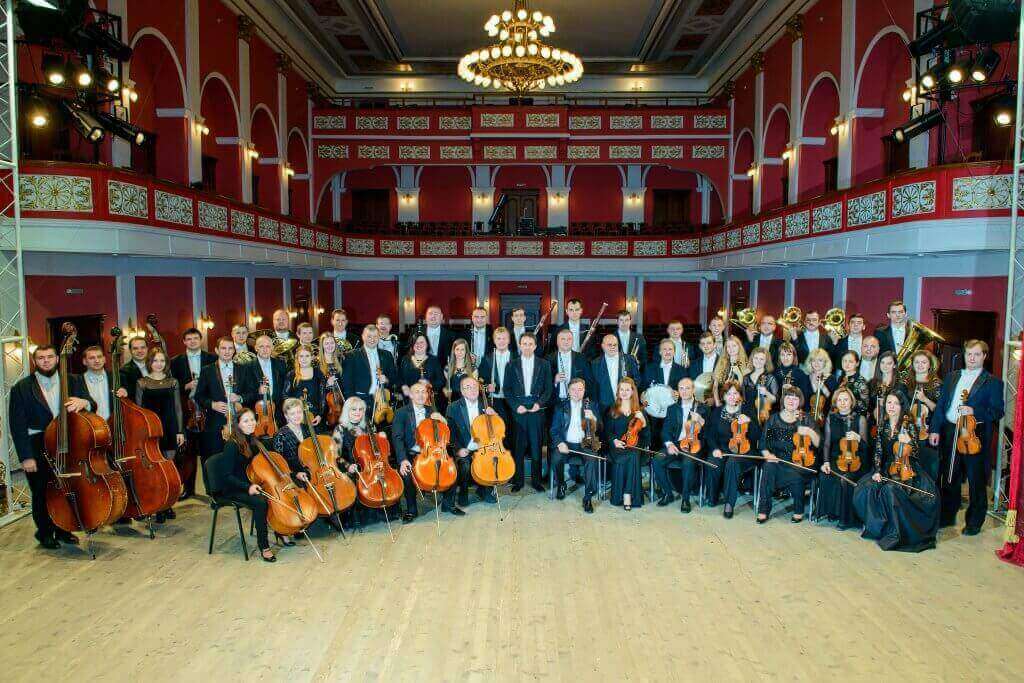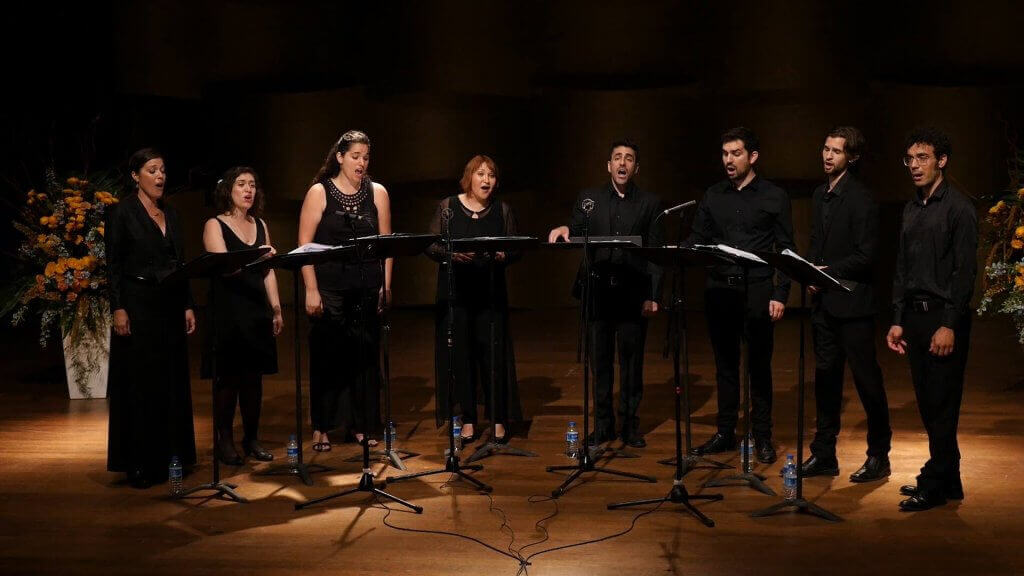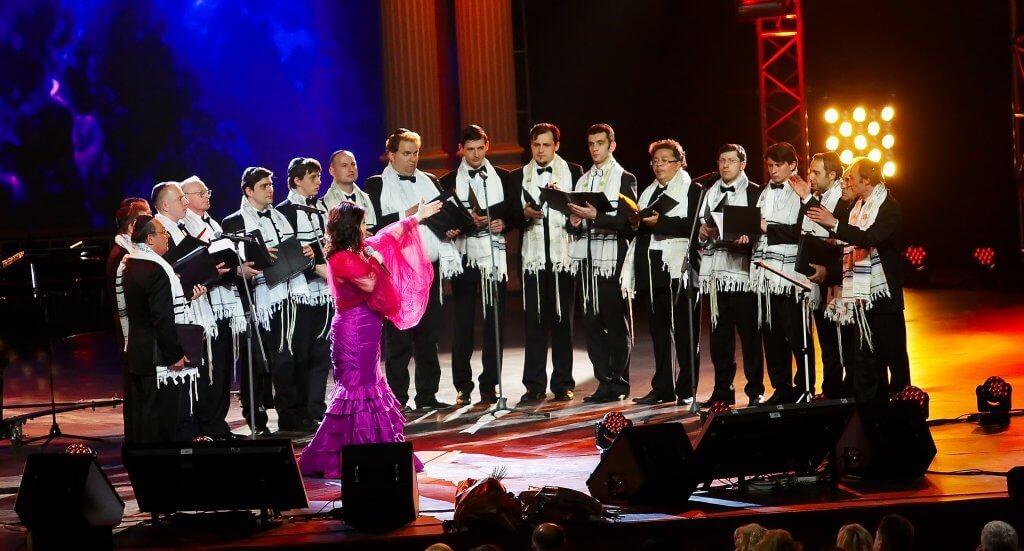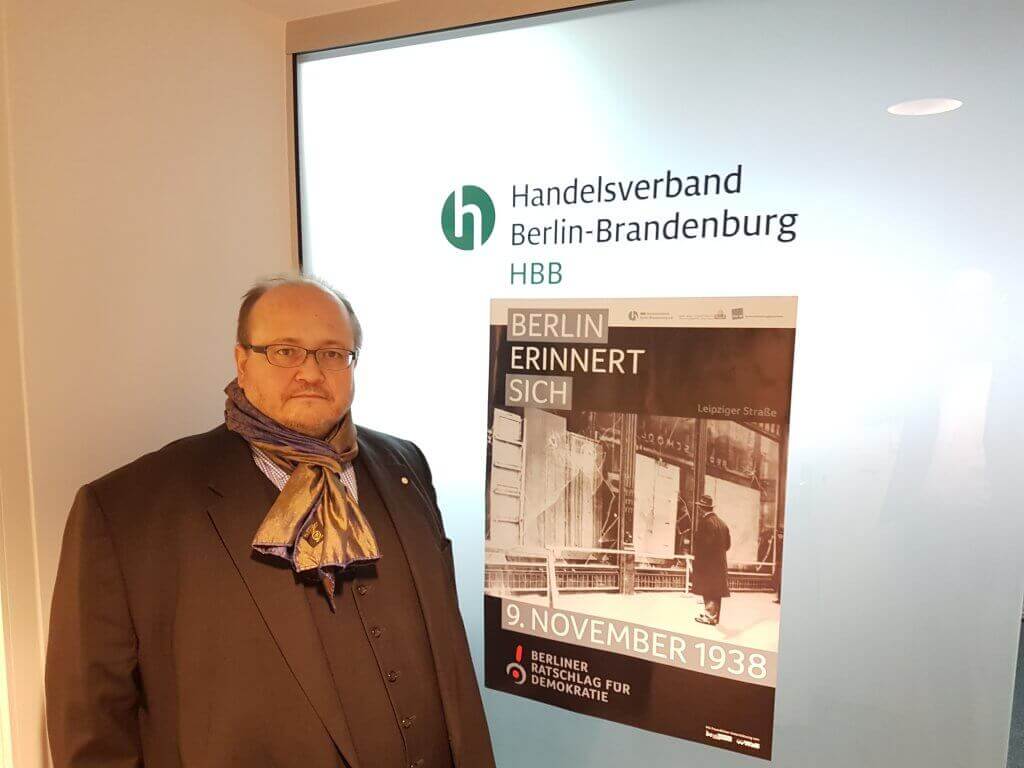STAR OF HOPE
Choral music in Israel
Louis Lewandowski Festival 2018
The origins of Israeli choral music
The roots of Israeli choral music go back a long way, even before the founding of the Jewish state.
Back in the 1920s, during the British Mandate in Palestine, Russian-born Shlomo Kaplan (1908-1974) laid the foundations for choral music in the Yishuv, the Jewish settlement.
Kaplan, one of the early pioneers, established the first choirs in this region and conducted them himself.
He later became head of the music department of the Histadrut, the umbrella organization of the trade unions, and promoted choral singing in agricultural settlements.
At the same time, Israel experienced an influx of composers, mainly from Europe, who shaped the musical identity of the newly emerging state and introduced their own compositional styles.
Many of them also devoted themselves to choral music.
The diversity of Israeli choral music
The repertoire of Israeli choral music is diverse and ranges from the early beginnings of the modern state to the present day.
It includes works by composers who emigrated to Israel as well as those who were born on Israeli soil.
One example of a more recent composition is Anna Segal’s oratorio “Todesfuge” from 2016, which is dedicated to the victims of the Shoah and their grandmother Frida.
The composition is based on Paul Celan’s poem of the same name, which describes the horror and death in a concentration camp.
This work celebrates its world premiere at the Louis Lewandowski Festival and commemorates the eightieth anniversary of the November pogroms of 1938.
Composers and their works
The founding of the state of Israel not only brought hope, but also inspired many composers.
Paul Ben-Haim, originally Paul Frankenburger from Munich, composed the “Fanfare to Israel” (1950) as a reaction to the founding of the state.
This impressive work will be performed in various arrangements in both the opening and closing concerts of the festival.
Ben-Haim and other prominent composers such as Mark Lavry and Mordecai Seter shaped Israeli choral music by combining Western forms with musical elements from the Middle East and the Eastern Mediterranean.
This synthesis became the hallmark of the art music of modern Israel.
The next generation and the influence of Jewish ethnic groups
The following generation of Israeli composers found their own ways into choral music.
Yehezkhel Braun, who worked intensively with Hebrew and Gregorian chant, and Mordecai Seter, who incorporated oriental Jewish music into his works, made a significant contribution to further development.
Seter’s motet “Al naharot Bavel” (1950) is an example of the profound influences of these musical traditions.
Oedoen Partos, who used Sephardic melodies in his work “Hamavdil” (1952), also contributed to the diversity of Israeli choral music.
Israeli choral music in the 21st century
To mark Israel’s seventieth anniversary, the Louis Lewandowski Festival presents a wide range of Israeli choral music.
From classical works to popular and folkloric melodies by composers such as Naomi Shemer and Gil Aldema, the festival celebrates the country’s rich musical heritage.
Contemporary composers such as Tsvi Avni and Avner Itai, a leading choral conductor in Israel, are also represented.
These works reflect the ongoing development and diversity of Israeli choral music, which is deeply rooted in the diverse traditions of Judaism and remains a vibrant presence in Israeli culture today.
Prof. Dr. Tina Frühauf

